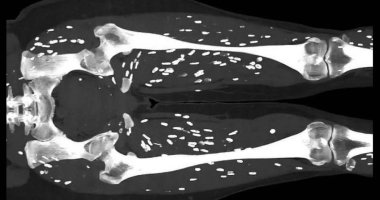Unlocking Oral Drug Delivery for Previously Untreatable Diseases: For years, many crucial proteins remained beyond the reach of oral medication due to their complex nature or location within the body. While traditional small molecules often fall short against these targets, larger biologics requiring injections limit patient convenience and accessibility. A game-changing study published in Nature Chemical Biology by researchers at EPFL’s Professor Christian Heinis lab paves the way for a new category of orally available drugs, tackling a longstanding hurdle in the pharmaceutical world.
Targeting the Untouchables:
The research focuses on cyclic peptides, versatile molecules known for their exceptional binding capabilities and specificity towards challenging disease targets. However, their potential as oral drugs has been hampered by rapid digestion and poor absorption in the gut.
Professor Christian Heinis, EPFL, explains: “Cyclic peptides hold immense promise for drug development as they can bind to difficult targets inaccessible to conventional methods. Unfortunately, their limited oral bioavailability severely restricts their application.”
Breaking the Cyclization Barrier:
The team set their sights on thrombin, a critical enzyme in blood clotting and a prime target for treating thrombotic disorders like strokes and heart attacks. To engineer thrombin-targeting cyclic peptides with sufficient stability for oral administration, they developed a two-step combinatorial synthesis strategy. This innovative approach generates a vast library of cyclic peptides with thioether bonds, enhancing their resistance to gut enzymes.
Heinis elaborates: “We successfully created cyclic peptides that bind to our chosen disease target and can be taken orally. Our new method allows for the rapid synthesis and screening of thousands of tiny cyclic peptides with varying sequences, paving the way for identifying high-affinity candidates for specific targets, like thrombin in this case.”
Two Steps, One Pot:
This ingenious method, occurring within a single container (“one pot” in chemistry speak), involves two key steps. First, linear peptides are synthesized, followed by a cyclization process using “bis-electrophilic linkers” to form stable thioether bonds. Next, acylation further diversifies their molecular structure.
By skipping intermediate purification steps, the method enables high-throughput screening directly in the synthesis plates. This streamlined approach allows for the rapid evaluation of thousands of peptides, leading to the identification of those with the highest affinity for the target molecule.
PhD student Manuel Merz, the project lead, elaborates: “Using this method, we generated a library of over 8,000 cyclic peptides with an average size just above the recommended limit for oral drugs. Remarkably, these peptides displayed a high affinity for thrombin.”
Oral Delivery Breakthrough:
Testing on rats revealed an oral bioavailability of up to 18% for these peptides. This means that nearly 18% of the orally administered dose successfully enters the bloodstream, a significant achievement considering the typical oral bioavailability of cyclic peptides is below 2%. This represents a major leap forward for biologics like peptides in the realm of oral drug delivery.
Setting New Targets:
By unlocking the oral potential of cyclic peptides, this research opens doors to treating a multitude of diseases previously resistant to conventional oral medications. The method’s versatility allows for targeting a wide range of proteins, potentially leading to breakthroughs in areas with unmet medical needs.
Merz continues: “For more challenging targets like protein-protein interactions, larger peptide libraries might be necessary. With further automation, creating libraries exceeding a million molecules seems feasible.”
The researchers aim to apply their method to challenging intracellular protein-protein interaction targets where traditional small molecules have struggled. They are confident that their approach can pave the way for developing orally applicable cyclic peptides for at least some of these previously untreatable diseases.
ALSO READ: New development on diagnosis and treatment of Ischemic cholecystitis









